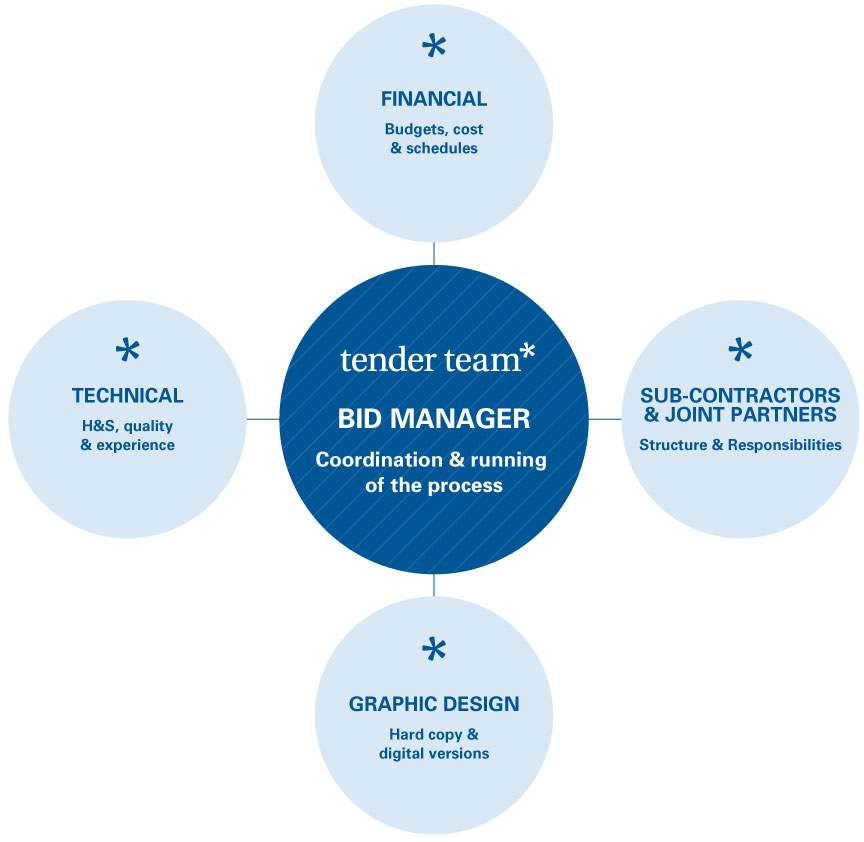
How leading Professional Services firms acquire and retain clients
Written by Fiona Dolan, Bid Manager, Tender Team fdolan@tenderteam.ie
Relationship, Relationship, Relationship
A core theme which comes back time and again from client surveys is the value of professional relationships. When we talk about the client or the organisation what we really mean is an individual or a few key individuals who are the consumers of the service. Key to success for top firms is the long-term value which can be achieved through fostering strong (and profitable) relationships with these individuals. As one Partner suggests “if you have a good relationship, all else hangs on that.”
People Buy People
Professional Services and services in general are people based by there nature and one should never underestimate the importance of those engaged in delivering the service. It should be remember that you have a unique opportunity to differentiate your organisation through your people. Getting your people out there and connecting with clients or prospective clients provides a forum for meaningful exchange. If you can match your team to the client through there individual skills and personalities, all the better. It should also be remembered that every-time you meet a client you are selling your services – infinitely you are selling yourself.
Reputation is Everything
In Professional Services terms clients may find it difficult to distinguish the brand from the reputation and both must be carefully managed. You need to ensure that your brand has prominence in the business arena and this is best done through careful fostering of your reputation. In a relatively small market like Ireland reputation can be defining and nothing will further your reputation more successfully than favourable client recommendations. Buyers need to be assured that they are investing in a service which is perceived as the ‘IBM’ of services – it validates their choice.
Trust is Foremost
Client sophistication has never been higher, they are discerning consumers of all manner of services and have a clear conception of what they expect from a ‘trusted advisor’. The expectation of technical expertise goes without saying but further to this is the need to connect on a personal level. The client needs to believe that they are an important part of the life of your firm and infinitely that their interests will be protected. Again, it goes back to the strength of the personal interaction, giving the client a sense that they are important.
Quantifying the Service
Despite increased levels of client sophistication, there may be blind spots with regard to the services which your individual firm provides. It is therefore incumbent on all client-facing staff to ensure that the client is receiving the services which can add the most value to their organisation. This may require them to ‘educate’ the client regarding services which may be of value to them. Of course this is best achieved through gleaning a thorough understanding of the client’s issues ad their unique business environment and then tailoring your service proposition to best enhance the client’s business.
Price Sensitivity and Adding Value
While price sensitivity is higher than it ever was, in tender situations it is not always the cheapest who wins. Leading firms are finding that while price is important it is infinitely the understanding of the client’s needs which is proving to be defining. ‘Do they get what I need’, ‘do they understand my business environment’, ‘is there a good fit’ are all seen as strong differentiators. Infinitely what will distinguish your service as far as the client perception is concerned is a tailored response which adds value in the client sphere and this is only achieved by listening to the client to elicit their individual business concerns and operational requirements.
Communication, Communication
‘You will not win work sitting at your desk’ cites one successful Partner. You have to get out there and engage with clients, talk to your clients, establish their objectives and the metrics by which they are judged – build relationships. The relationship should be continuous, throughout the term of the engagement – bring them along with you to ensure that you are constantly aligning your service to the client’s (often changing ) needs. Intra assignment communication is also important in order to give the client an understanding that you are not just there for them when you are chargeable, that you have there long-term interests at heart and that the relationship is a genuine one.
See One, Do One, Teach One
There is a common misconception that business development is the responsibility of the Partners or Senior Executives when in fact marketing and business development are incumbent on all levels of client-facing staff. In a profession which relies on the expertise of individuals, firms are infinitely judged by the calibre of all those individuals. Succession planning is also important for the continued success and survival of any firm. Therefore, business development activity should not be left to senior resources but rather all levels of staff should be encouraged to participate in the acquisition and retention of clients. If you include more junior members in your pitch teams you will be fostering the business developers of the future – see one, do one, teach one.














